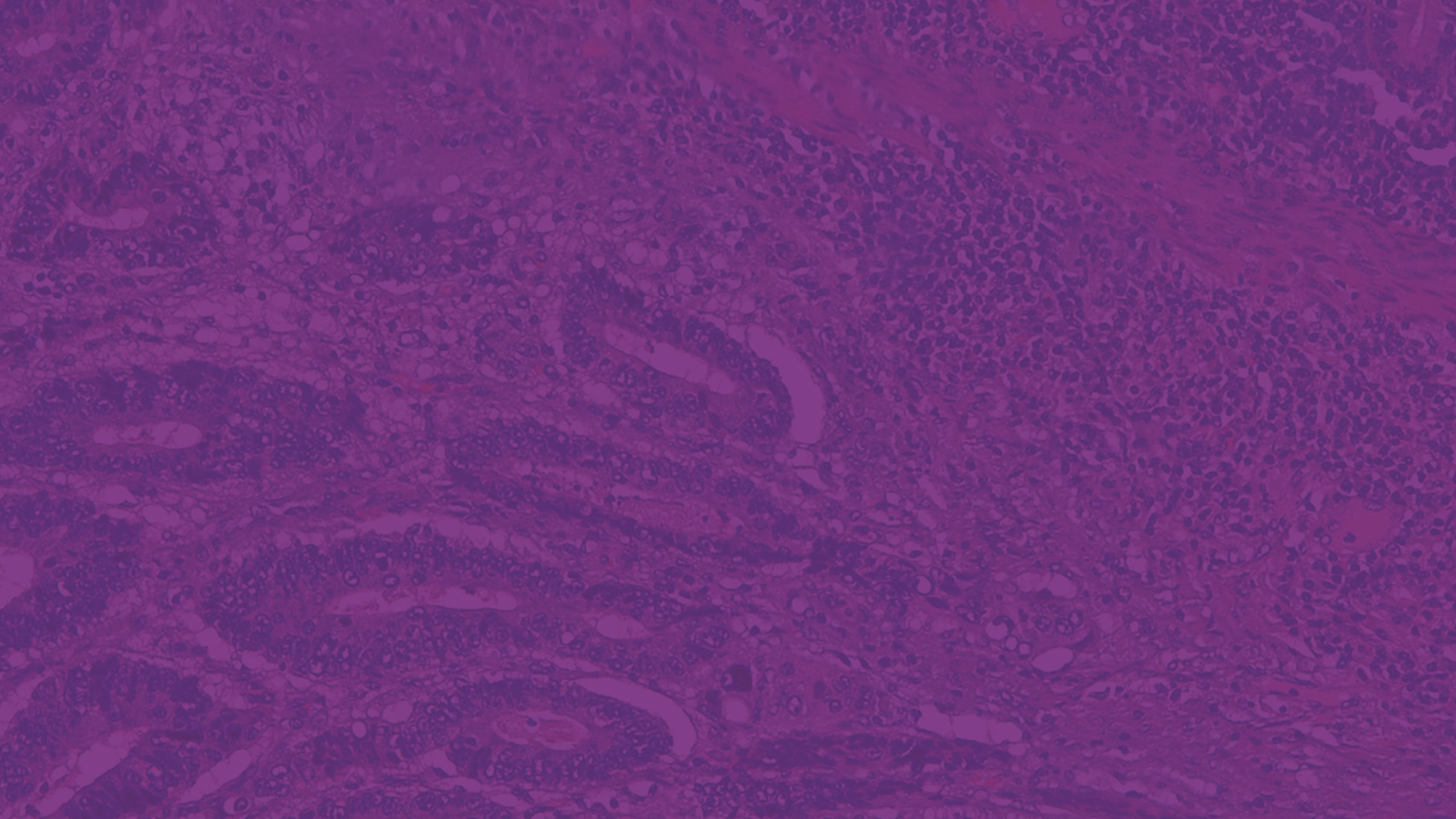-
 Colon CancerRead the story of ASCP Patient Champion Rebecca and learn about the role
Colon CancerRead the story of ASCP Patient Champion Rebecca and learn about the role
of laboratory testing in the diagnosis and treatment of colon cancer.
Starting in the large intestine or colon, colon cancer is one of the most common forms of cancer. It mainly affects people over the age of 50, and is detected best via colonoscopy.

Carcinoma of the colon.
It was a busy week for Rebecca, a Santa Fe-based sculptor. On a Monday in July 2009, she had a colonoscopy for mysterious stomach pains. The doctor responded almost immediately that she had colon cancer. On Tuesday she called the cancer center at the University of New Mexico. On Wednesday, she installed a sculpture she had donated to that same center in memory of her late husband, who had passed away from leukemia. By Friday, she was a patient there herself.
Rebecca was stunned by her diagnosis, and frightened about the unknown outcome. But she also had confidence in her care team at the University of New Mexico, and at the same time, her sister, a GI pathologist, sent Rebecca’s lab specimens off to one of the top colon cancer doctors in the country. That doctor confirmed with Rebecca’s University of New Mexico team that the treatment plan they’d designed was the right course of action to treat Rebecca’s cancer.
“It was unbelievably comforting to have my sister be in touch with other doctors, and following my treatment every step of the way,” Rebecca says.
She underwent radiation treatments at UNM, and took a chemotherapy drug every day to augment the treatment. She also had once a week chemotherapy treatments in Albuquerque, which required a blood draw at each visit. The laboratory, she explained, would check her levels to make sure she was able enough to have the chemotherapy treatment.
The treatments weren’t easy, but Rebecca finished her course in September 2009, and 10 weeks later, after a PET scan, was pronounced tumor-free.

Being the sister of a pathologist, Rebecca respected the work laboratory professionals and pathologists do. But now, post-treatment, she understands and respects it in a way she couldn’t have before her cancer diagnosis.
“Without lab professionals and pathologists, I think modern medicine would be in a world of hurt these days,” she says. “Laboratory professionals and pathologists help doctors make accurate diagnoses—and where would we be without that?"